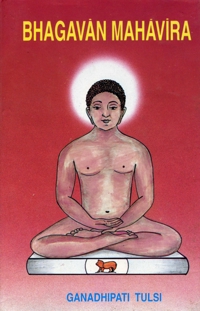 | Chapter 9 | Philosophy And Exhortation |
61.
The ignoramus is always benighted. The enlightened is always wide awake.
(Acaranga, 3/1)
62.
The five senses of the awakened always remain inactive. The five senses of the unawakened always remain active. By means of the active five one acquires bondage while by means of the inactive five the bondage is severed.
(Isibhasiyam, 29/2)
63.
Just as every body keeps away from a burning fire, so do the evils remain away from an enlightened person.
(Isibhasiyam, 35/23)
64.
Keep yourself always awake. One who keeps awake in creases his wisdom. He who falls asleep is wretched. Blessed is he who keeps awake.
(Brhat kalpa-bhasya, 3382)
65.
He who lies idle like a python simply wastes the ambro sia of wisdom. With the loss of his wisdom, he is no better than a bull.
(Brhatkalpa-bhasya, 3387)
66 .
The yogin who is indifferent to worldly affairs remains spiritually alert to his own duty, namely, his duty to wards his soul. On the other hand, one who indulges in worldly affairs is not dutiful to his soul.
(Moksa-pahuda,31)
67.
Birth is attended by death, youth by decay and fortune by misfortune. Thus everything in this world is momentary.
(Kartikeyanupreksa, 5)
68.
The courageous as well as the cowardly must die. When death is inevitable for both, why should not one welcome death smilingly and with fortitude?
(Mulacara,2/100)
69.
Both the righteous and unrighteous must die. When death is inevitable for both, why should not one embrace death while maintaining good conduct?
(Mulacara, 2/101)
70.
There is nothing as fearful as death, and there is no suffering as great as birth. Be free from the fear of both birth and death, by doing away with attachment to the body.
(Mulacara, 2/119)
 Acharya Tulsi
Acharya Tulsi

